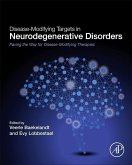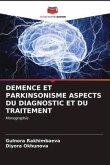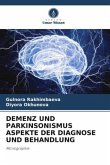Parkinson's disease (PD) is one of the most common neurological diseases, which is very common in the elderly. According to epidemiological data, this disease develops in at least 1% of people over 65 among chronic brain diseases, PD occupies one of the leading places, which is determined by its high proportion in the structure of the pathology of the nervous system, frequent disability and a sharp decrease in the quality of life of patients. The most serious cognitive condition, dementia, causes patients to become misaligned in their social and professional lives. In addition to being a medical issue, dementia is a severe socio-economic issue that results in direct financial losses due to the social expenditures associated with patient care and treatment. The so-called indirect losses, which result from family members' incapacity to continue their jobs as caregivers for patients, are much more important. However, the range of cognitive impairment in the elderly is greater and includes less serious illnesses in addition to dementia. Cognitive impairments that go beyond the age norm, but do not reach severe dementia, are even more common.
Hinweis: Dieser Artikel kann nur an eine deutsche Lieferadresse ausgeliefert werden.
Hinweis: Dieser Artikel kann nur an eine deutsche Lieferadresse ausgeliefert werden.








